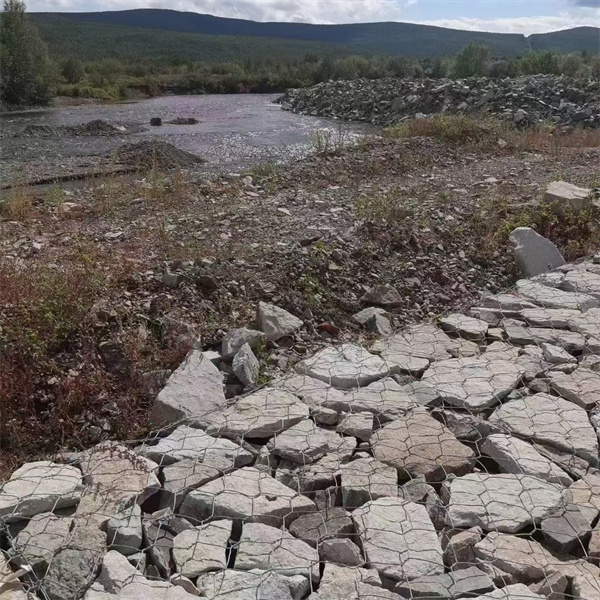Dec . 11, 2024 09:26 Back to list
Advantages and Disadvantages of Gabion Walls in China Analysis
Pros and Cons of Gabion Walls in China
Gabion walls, composed of wire baskets filled with rocks or other materials, are increasingly popular for various applications in China, including landscaping, erosion control, and civil engineering. While they offer numerous advantages, they also come with certain disadvantages. This article explores the pros and cons of gabion walls, providing a holistic view for potential users.
Pros of Gabion Walls
1. Cost-Effective One of the most appealing aspects of gabion walls is their cost-effectiveness. The materials used for filling the cages are often locally sourced rocks, which can significantly reduce transport costs. Additionally, the installation of gabion walls typically requires less labor compared to traditional masonry walls, further lowering overall expenses.
2. Environmental Benefits Gabion walls can have positive environmental impacts. They allow for natural drainage, reducing the risk of waterlogging and erosion. Over time, vegetation can grow within the gaps of the stones, promoting biodiversity and creating habitats for various species. Moreover, the use of natural stones helps to blend the structures into the surrounding landscape, minimizing visual disruption.
3. Durability and Longevity When built properly, gabion walls are highly durable and can withstand the forces of nature, such as floods and landslides. The wire mesh is designed to resist corrosion and rust, ensuring the longevity of the structure. This resilience makes gabion walls suitable for both temporary and permanent installations.
4. Versatility Gabion walls can be designed for a variety of applications, including retaining walls, sound barriers, and decorative landscaping features. Their adaptable nature means they can fit into numerous projects, from urban settings to rural landscapes. Furthermore, they can be engineered to different sizes and shapes to suit specific needs.
5. Easy Maintenance Maintaining gabion walls is relatively easy. In most cases, they require minimal upkeep, primarily because they can handle environmental pressures without degrading. If any stones become loose or the wire baskets sustain damage, repairs can be made without extensive labor.
china gabion wall pros and cons

Cons of Gabion Walls
1. Aesthetic Limitations While some people appreciate the natural look of gabion walls, others may consider them unattractive. They can be perceived as unrefined compared to traditional brick or stone walls. This aesthetic limitation might be a concern for projects where visual appeal is a priority, such as high-end residential developments or urban beautification initiatives.
2. Structural Limitations Gabion walls have limitations in terms of height and load-bearing capacity. For instance, they may not be suitable for areas where soil pressure is exceptionally high, or where additional structural support is required. In such cases, engineers may need to resort to more conventional wall types.
3. Potential for Erosion If not installed correctly, gabion walls can contribute to erosion rather than mitigate it. Water can seep through the rocks, and if the wall is poorly designed or maintained, soil can wash away from behind it. Proper drainage design is crucial to prevent this issue and to maintain the wall's integrity.
4. Wildlife Interaction While gabion walls can promote biodiversity, they can also attract unwanted wildlife. Small animals may burrow into the wall or nest within it, which could lead to pest control issues. Furthermore, the stones can become a habitat for insects, which may raise concerns for nearby residents.
5. Installation Challenges Although gabion walls are often easier to install than traditional walls, they are not without challenges. The proper stacking of the wire cages, filling them with stones, and ensuring stability can require specialized knowledge to achieve the best results. Improper installation can lead to structural failures, which can be costly to rectify.
Conclusion
In summary, gabion walls present both advantages and disadvantages for construction and landscaping projects in China. Their cost-effectiveness, environmental benefits, and durability are significant draws, while aesthetic concerns, structural limitations, and potential wildlife issues warrant careful consideration. As with any building material, a comprehensive evaluation of the specific project's needs and challenges will help determine if gabion walls are the right choice.
-
Visualizing Gabion 3D Integration in Urban Landscapes with Rendering
NewsJul.23,2025
-
The Design and Sustainability of Gabion Wire Mesh Panels
NewsJul.23,2025
-
The Acoustic Performance of Gabion Sound Barriers in Urban Environments
NewsJul.23,2025
-
Mastering the Installation of Galvanized Gabion Structures
NewsJul.23,2025
-
Gabion Boxes: Pioneering Sustainable Infrastructure Across the Globe
NewsJul.23,2025
-
Custom PVC Coated Gabion Boxes for Aesthetic Excellence
NewsJul.23,2025
-
Installation Tips for Gabion Wire Baskets in Erosion Control Projects
NewsJul.21,2025






